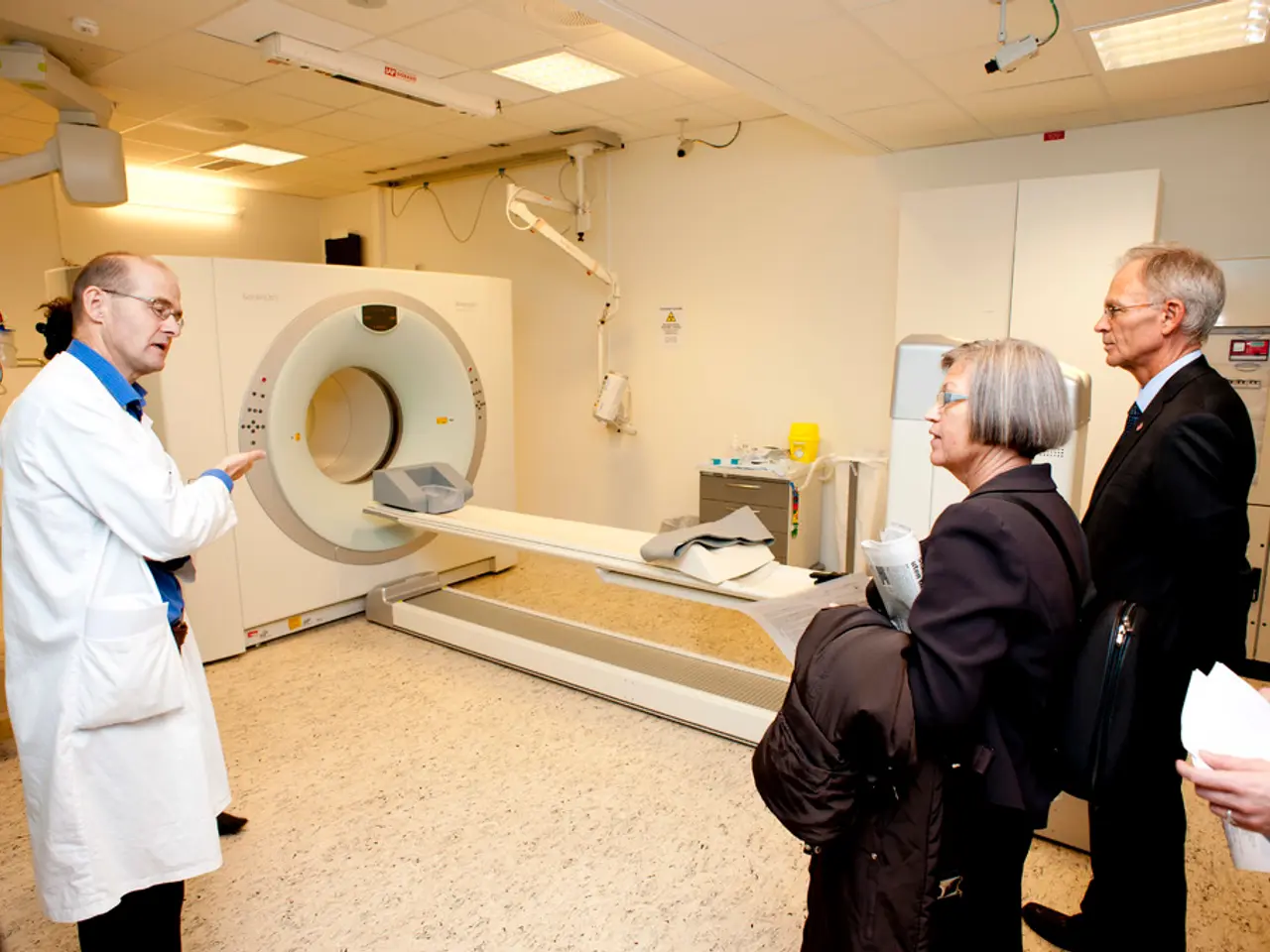Medical Professional Reveals Shocking Training Practices in Current U.S., Presidency of Trump Being Mentioned
In an unprecedented move, doctors in the United States are receiving training on the Fourth and Fifth Amendments of the U.S. Constitution as part of their clinical education. This training is aimed at enhancing their understanding of patients' legal rights and the intersection of healthcare practice with constitutional protections, particularly in areas like patient privacy, consent, and protection against self-incrimination.
The Fourth Amendment, which protects against unreasonable searches and seizures, is relevant for patient privacy and the handling of medical records or bodily samples. The Fifth Amendment, which includes the right against self-incrimination, is crucial in clinical and legal contexts, especially related to consent and disclosure.
This training equips doctors with the skills to respect and protect constitutional rights in healthcare delivery. It also supports legal compliance and advocacy, improving patient care. Schools and programs integrating this training aim to prepare doctors not only as clinicians but also as informed legal advocates, particularly at the intersection of health and law.
Health law programs and clinics at institutions like Harvard and the University of Virginia include legal training that addresses constitutional issues, helping physicians understand the implications of constitutional law in clinical settings and health policy advocacy. Organizations like the American Medical Association involve physicians in constitutional matters related to medical governance and patient rights, indicating the professional importance of such knowledge.
However, the need for this training has become more pressing due to recent events. Enforcement agents have been known to lie to elementary school administrators to gain access to children, and ICE (Immigration and Customs Enforcement) has seemingly been given the green light to invade clinics and hospitals with impunity. Militarized agents have raided farms, injuring and terrorizing workers, leading to the death of a farmworker. Pregnant patients have started to die due to government decisions that contradict medical advice.
In response, doctors are learning to lock their screens immediately as a first act to protect patients, and they are being taught what to do if law enforcement invades a clinic. They are also learning that they do not have to divulge information or say anything to law enforcement. Staff members at The Ontario Advanced Surgery Center shielded a worker from armed, masked men.
The increased training comes as many patients are experiencing insomnia, panic disorder, anxiety, and arthritis flare-ups. After returning to clinical medicine in spring 2021, the doctor found that patient anxiety and depression scores are unusually high. The doctor is prescribing more medications for anxiety and depression and referring patients to behavioral health and psychiatry more frequently than before.
Moreover, vaccines could become more difficult to obtain or be covered by insurance due to the presence of anti-vaxxers in positions of power. Gender affirming care could also be at risk or become more difficult to obtain.
In conclusion, the training for doctors indicates a possible preparation for a police state, but it also underscores the importance of understanding and safeguarding constitutional rights in healthcare delivery. The training aims to improve patient care and support legal compliance and advocacy.
[1] Harvard Law School, Health Law and Policy Program. (n.d.). Retrieved from https://hls.harvard.edu/programs/health-law-policy-program/
[2] American Medical Association. (n.d.). Retrieved from https://www.ama-assn.org/
[3] University of Virginia School of Law, Health Law and Policy Program. (n.d.). Retrieved from https://www.law.virginia.edu/academics/centers-clinics-institutes/health-law-policy-program/
[4] American Civil Liberties Union. (n.d.). Retrieved from https://www.aclu.org/
[5] Physicians for Human Rights. (n.d.). Retrieved from https://www.phr.org/
- In light of escalating conflicts between law enforcement and healthcare, doctors are learning to protect patient privacy and legal rights, especially in the face of unreasonable searches and seizures (Fourth Amendment).
- The right against self-incrimination (Fifth Amendment) is vital in clinical settings, as doctors are being trained to decline divulging information to law enforcement without proper legal counsel.
- Health law programs at institutions like Harvard and the University of Virginia offer legal training for physicians, helping them understand how constitutional law intersects with clinical practice and health policy advocacy.
- The increased training for doctors comes at a time when immigration agents have gained notorious rights to invade clinics and hospitals without regard, leading to injuries, terror, and even fatalities among workers.
- The ongoing political climate has made vaccines and gender affirming care more controversial and potentially harder to obtain or cover by insurance, highlighting the crucial need for doctors to be informed advocates for their patients' rights.
- Organizations such as the American Civil Liberties Union and Physicians for Human Rights are advocating for stronger protections for patients' rights and the intersection of health and law, providing resources and support for doctors in navigating these complex issues.




